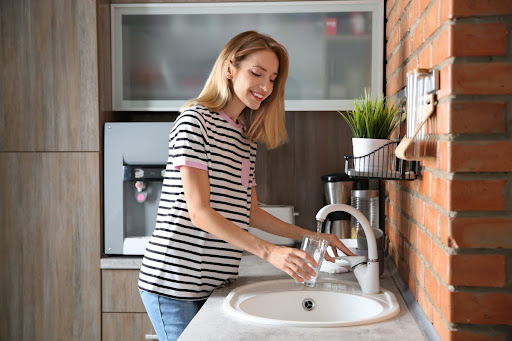
How Do Water Softeners Work?
In the journey towards a more comfortable and efficient home, understanding how a water softener works is a key step for many homeowners. Hard water, rich in minerals like calcium and magnesium, can wreak havoc on plumbing systems, appliances, and even your skin and hair. This is where the magic of water softeners comes into play. Let’s dive deep into the world of water softeners, exploring their functionality, benefits, and how they can transform the quality of water in your home.
Understanding Hard Water and Its Impact
Before we delve into how a water softener works, it’s essential to grasp what hard water is and why it’s a concern. Hard water contains high levels of calcium and magnesium ions. While not harmful to health, these minerals can lead to scale buildup in pipes, reduce the efficiency of water heaters, and leave behind soap scum on surfaces. Hard water can also make it challenging to form a lather with soap, resulting in dry skin and dull, lifeless hair.
The Science Behind Water Softeners
What are water softeners, and how do they tackle the problem of hard water? At their core, water softeners are devices that remove the minerals that cause water hardness, primarily calcium and magnesium, through a process called ion exchange. This process transforms hard water into soft water, which is gentler on your home and your skin.
Ion Exchange: The Heart of Water Softening
The ion exchange process is central to understanding how a water softener works. Water softeners contain a mineral tank filled with tiny resin beads, which are charged with sodium ions. As hard water passes through the tank, the resin beads attract and hold onto the calcium and magnesium ions, releasing sodium ions in exchange. This exchange eliminates the hardness of the water, leaving it soft and more manageable.
The Role of the Brine Tank
Another key component in understanding what water softeners are is the brine tank. This tank holds a highly concentrated solution of sodium chloride (salt) or potassium chloride. During the regeneration cycle, a strong brine solution flows from the brine tank into the mineral tank. This solution recharges the resin beads with sodium ions, flushing the trapped calcium and magnesium ions out of the system to a nearby drain.
Regeneration: Keeping the System Effective
Water softener regeneration is a crucial process that ensures the system continues to produce soft water. Depending on the water softener system’s design, regeneration can occur on a timer or be triggered by a mechanical water meter that measures water usage. This process ensures that the water softener can continue to remove hardness minerals effectively, maintaining the efficiency and longevity of the system.
The Benefits of Softened Water
By now, it’s clear how a water softener works to transform hard water into soft water. But what are the tangible benefits of making this switch? Soft water can significantly extend the life of plumbing by preventing scale buildup. It also enhances the efficiency and lifespan of water-using appliances, from water heaters to washing machines. Soft water can improve your skin and hair health, prevent soap scum, and even make cleaning easier, as it interacts more effectively with soaps and detergents.
Choosing the Right Water Softener
Finding which water softener systems are best for your home will depend on several factors, including the hardness of your water, the size of your household, and your water usage patterns. High-efficiency water softeners are designed to minimize salt and water usage during regeneration, making them an eco-friendly choice for many homes.
Installation and Maintenance: Ensuring Peak Performance
The installation of a water softener should be handled by professionals like those at Reynolds Electric and Plumbing. Proper installation ensures that your water softener system is correctly integrated into your home’s plumbing system. Regular maintenance, including checking salt levels in the brine tank and occasionally cleaning the system, is essential to keep your water softener functioning efficiently.
Schedule Your Services Reynolds Electric and Plumbing!
Understanding what water softeners are and how they work is the first step toward improving your home’s water quality. Whether you’re dealing with hard water issues or looking to upgrade to a high-efficiency water softener system, Reynolds Electric and Plumbing is here to help. Our team of experts can guide you through the selection, installation, and maintenance of your water softener, ensuring that you enjoy the benefits of soft water for years to come.
Don’t let hard water affect your home and health. If you’re looking for a plumber in Eugene, OR, or the surrounding area, turn to Reynolds Electric and Plumbing. We offer a wide range of services, including drainage pipe repair, to accommodate your needs.
Let us help you make an informed decision about water softening systems and ensure your plumbing is in top shape. Your home deserves the best care, and soft water is a key part of that care. Contact us today to schedule an appointment!
